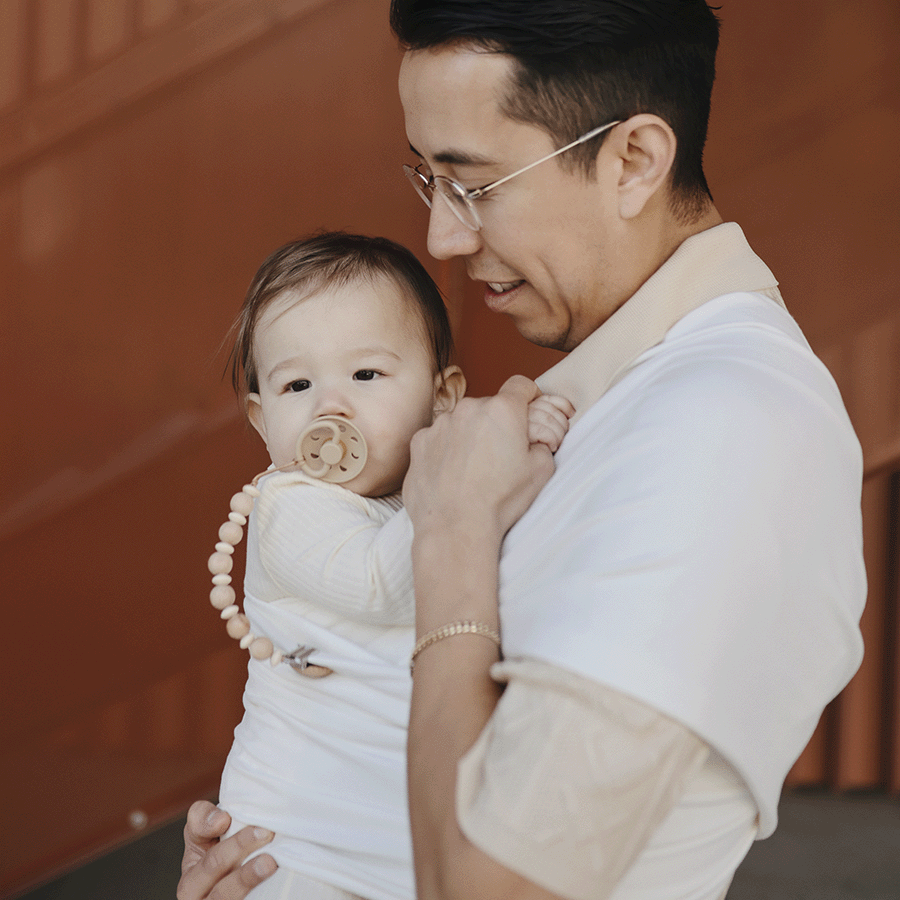
Why the father plays an important role in baby’s life
Throughout the pregnancy and in the hours after the birth, the mother has the direct link to the child, while the father, for good reasons, has to settle for the bystander role. After the birth, many parents have already got used to this distribution of roles, and therefore the father unconsciously keeps being parked on the sidelines. But neither the mother, father nor the baby gains anything by this situation.
What role does the father play when baby comes into the world?
A completely natural attachment hierarchy typically arises in the family when a baby is born – where it is usually the mother who is preferred. But this is entirely due to biology in the beginning because the child will naturally orientate itself most towards the caregiver who gives the child food and to whom the child is most accustomed. Since the mother carries the child in the womb, the attachment to the mother has already started in the womb, and the child is also more used to the mother’s voice and heartbeat.
But if, for example, the father has spoken to the baby through the abdominal skin during pregnancy (this will make sense from the 20th fetal week), then the baby has also become more used to father’s voice. And if the father also feeds baby with bottle or takes care of many of the other care tasks, such as cuddling, dressing, bathing etc., then the father has an equally important role in the child’s life as the mother has.

How can you get the father more involved when the baby is born?
It is largely the father’s own responsibility to get involved with the baby and also be the one who e.g., carries the child, sits with the child when it sleeps, takes on care tasks, and talks to the child from the beginning. The child understands far more than we might think, and it is the early attachment that also later defines the relationship between child and parents.
It can be difficult because it is often the mother who is with the child the most, because the father comes back to work while the mother is at home with the baby. Society has some frameworks that work a little against getting fathers on the field. Time with the child is essential so that the father can get on the field, and the quality of togetherness and continuity are also important for the father “to be allowed” by the child, for e.g., comforting, changing diapers, cuddling, etc. Therefore, it is an internal task in the family, and it may be a good idea for both parents to agree on how to share the time and tasks between them.
If the parents agree that the father takes care of the practical things at home and the mother takes care of the baby, then it is also only natural that the child will later prefer the mother to handle the care tasks, because that is what the child is mostly used to. It can therefore make good sense that the father also takes the lead in the care tasks; he can do all the same things as the mother except breast-feeding. It is also important to point out that in order for the father to feel that he can and wants to take the lead in caring tasks and get involved, it is absolutely essential that he feels that the mother has confidence in his abilities as a father, and that both believes in and supports his attempts and involvement. Here, the mother has an important role in also acknowledging the father, and articulating quite specifically what she sees and admires in the father. When she does that, the father will flourish in his role as a father, and both the couple and the relationship between father and child will benefit from it.

Source: Lena Adalberth, MOAR.dk
What are the advantages of involving the father in everyday tasks with baby?
Recent research has shown that fathers’ influence can be traced all the way back to when the child is 3 months old. Here you can see that the father’s involvement significantly strengthens the child’s cognitive abilities. In other words, when the father has been engaged from the start, the child’s mental processes in the brain, which give the child the ability to speak, reason, think and problem solve, will be strengthened to a great extent.
It is also seen that children with committed fathers who talk and play with them have an overall more varied language, because it is different how the mother and the father talk and explain themselves. This means that the child hears more different language and increases its social skills when the father is involved. As opposed to when the father is absent.


